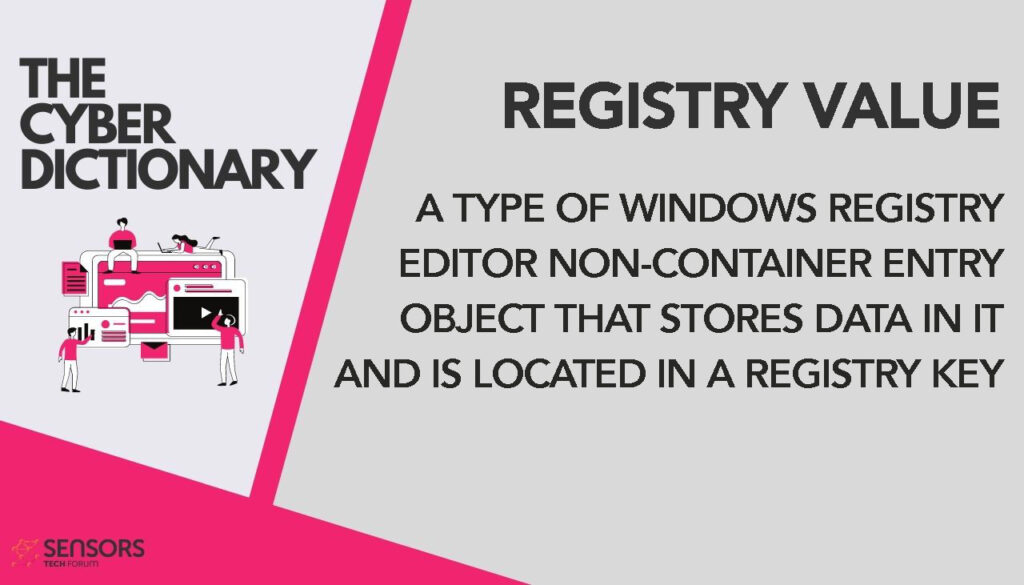What Is Registry Value?
Short definition: Type of Windows Registry Editor objects, that store data in them and are located in Registry Keys.
Extended definition:
In Cybersecurity, Registry Value is used for the same function, but for malicious purposes – to store data in itself, that is programmed in a specific method to influence the Windows computer in a certain way. For example, some registry values can be created in the registry subkeys of your computer’s shut down schedule and activating those values by creating them in this subkey (the place containing the registry values) with a certain data will shut down your computer system at a specific time, for example 5 PM each working day.
This is where malware comes in – it abuses those registry values by creating them in specific folders of Windows to make the operating system do whatever it wants (or the hacker wants the malware to do). Modified registry values by different unwanted programs, like adware and browser hijackers can be used to change the settings of your most often used web browser, like alter its homepage, new tab page and other such options. They can also be abused to the extent of running files automatically when you start Windows, which most viruses often do to maintain control over the infected computer system.
For more definitions, check our Cyber Dictionary.


